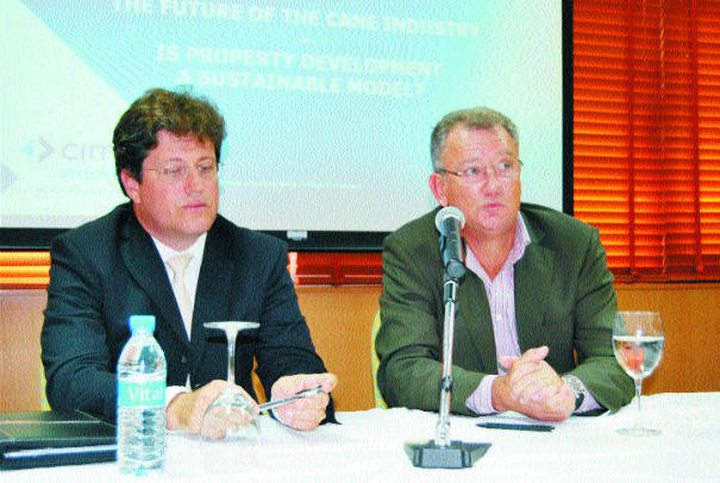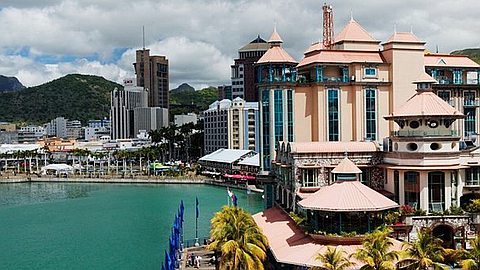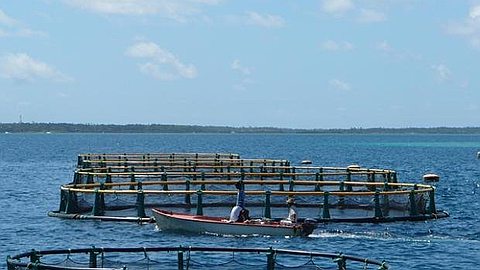Sugar Industry Reaps Benefits Of Africa Move

He remembers going “half way round the world to visit the top sugar producing country” to gather insights into the future of the industry. To his surprise, the organisers did not put forward a Brazilian company as a model to emulate, but rather presented a Mauritian factory: “The case study of which was precisely our plant.”
The model is an integrated complex which includes sugar cane plantations, a mill that produces raw sugar, a refinery to manufacture higher-value white sugar, and a power plant that burns bagasse, the leftover of the process, to produce electricity.
The method saved the Mauritius sugar industry, which was born in 1696 when the Dutch introduced sugar cane from Java, from oblivion. Rundheersing Bheenick, governor of the Bank of Mauritius and a former minister of planning, says: “We have managed to reinvent the sugar industry.”
Before the last wave of investments, Mauritius exported lower value-added raw sugar, instead of white, or refined sugar, as it is the case nowadays. Ten years ago, the island exported in bulk, a ship at a time of raw sugar to a single destination. Now, it sells its white sugar in containers, allowing smaller shipments that target multiple locations with a single ship.
The reinvention is evident at Omnicane’s La Baraque plant, in the southeast of the country. The centenary-old facility, renovated at a cost of €200m since 2006, produces not only white, or refined, sugar for the European market, but nearly a quarter of the electricity that Mauritius consumes. Soon it will produce ethanol too. “Without the investments we would have not survived,” says Mr d’Unienville.
That survival was under question after the EU started to phase out support to the industry. Mauritius, as other former European colonies, benefited for years from the so-called Sugar Protocol of the Lome Convention, which guaranteed both duty-free access to Europe and higher prices than on the global market. Brussels progressively dismantled over the last decade some of the benefits that Mauritius enjoyed, culminating with a nearly 40 per cent cut in 2009 in the guaranteed price. Still Mauritius benefits from preferential access to Europe.
Jean Noel Humbert, head of the Mauritius Sugar Syndicate, the company that sells all the produce of the island on behalf of the industry, says that with high prices no longer guaranteed, Mauritius has had no other option but seek the route of “value added”. This is why almost all companies invested in refineries, which process raw sugar into white sugar. Mr d’Unienville puts it bluntly: “We needed to move into the value chain. If we were [today] producing just raw sugar, we would be dead”, he says.
The new face of the Mauritius sugar industry is not only modern plants, but also far fewer companies. Over the last two decades, it has consolidated from about 20 small and medium groups into four large companies – Omnicane, Terra, Medine and Alteo – while the number of cane growers have also shrunk.
Sugar production has also fallen sharply over the past three decades. Raw sugar output peaked in 1973 at 718,000 tonnes, with about 85,000 hectares of cane plantations and hundreds of small planters involved in the business. For the 2012-13 crop season, the industry forecast production of 425,000 tonnes, down 40 per cent from the record of 40 years ago. But the industry believes the worse of the decline is over, with production hovering around the current level of about 400,000 tonnes in the near-term.
Mr Humbert of the sugar syndicate is among those who believe that production can fall no further. “The small cane growers have already abandoned their plantations, so we are now in the solid ground of the big growers and the large companies,” he says.
Sugar cane plantations still cover nearly half of the land of Mauritius, giving the island a green skin clearly visible from the air. But the crop is no longer the economic monoculture it once was when the island-nation in the Indian Ocean won independence from the UK in 1968. At that time, sugar represented 30 per cent of the GDP and 90 per cent of the value of exports. Today, as the country’s economy diversifies in tourism, textile, information technology and financial services, sugar accounts for just 2 per cent of Mauritius’ GDP and 14 per cent of the value of its exports.
The crop was introduced by the Dutch, but it was not until French colonisation from 1715 to 1810 that it rapidly grew. And it was under British rule (1810-1968) that the industry expanded into the main economic engine of the island.
Industry executives say that after more than 300 years of sugar production on the island, the future of the Mauritian industry is to expand into the African continent. Sugar consumption is growing rapidly in countries such as Kenya and Mozambique as the emergence of a middle-class starts to change the region’s dietary habits. Local sugar prices are often above the international market due to chronic shortages in the region, executives say. Omnicane is already building a $200m sugar plant south of Mombasa, the port-city of Kenya, while others are expanding elsewhere.





